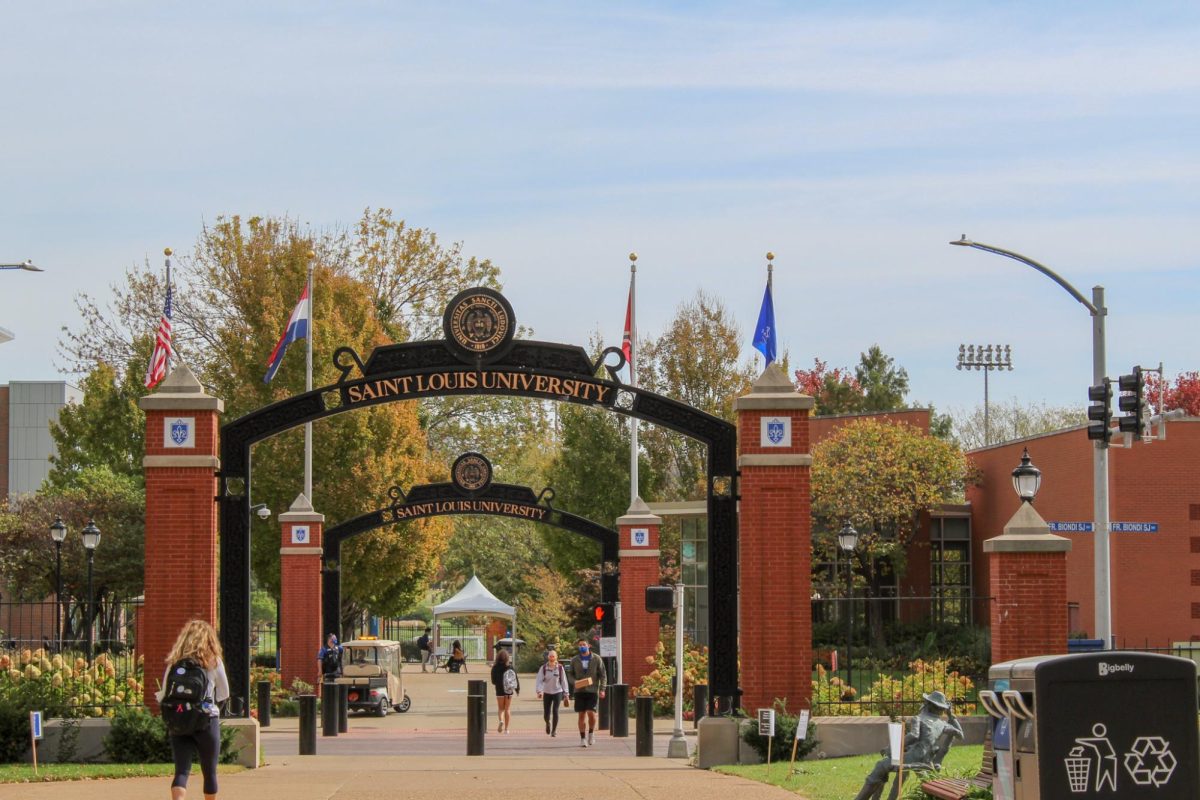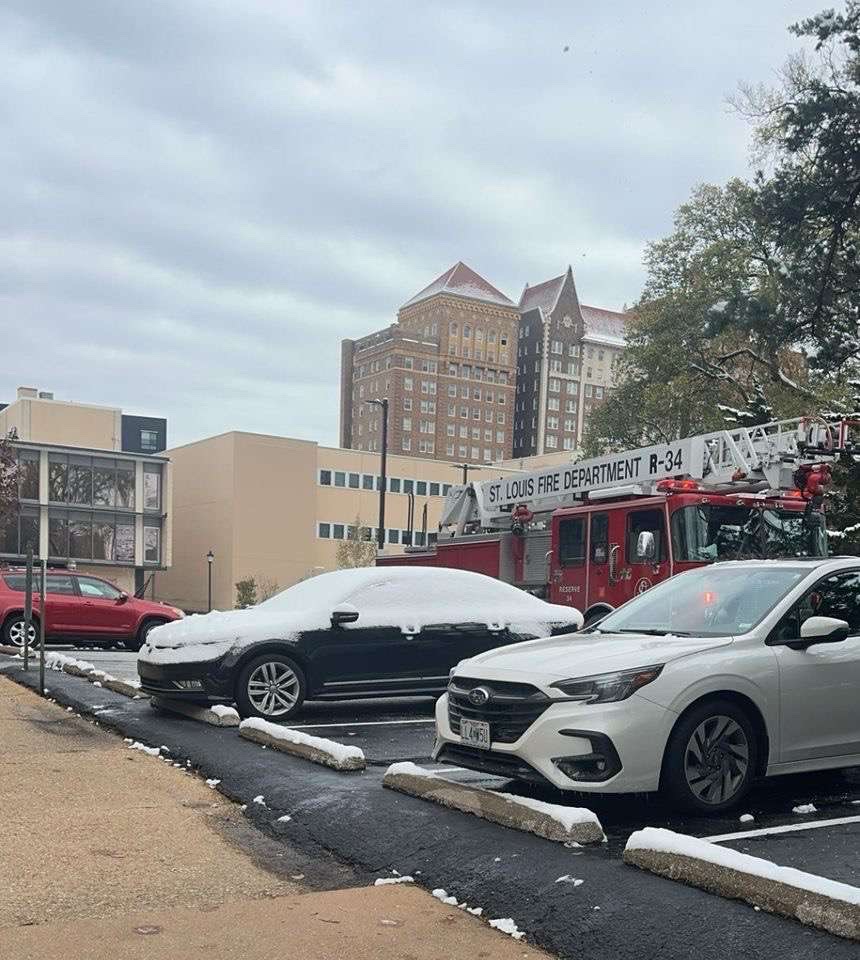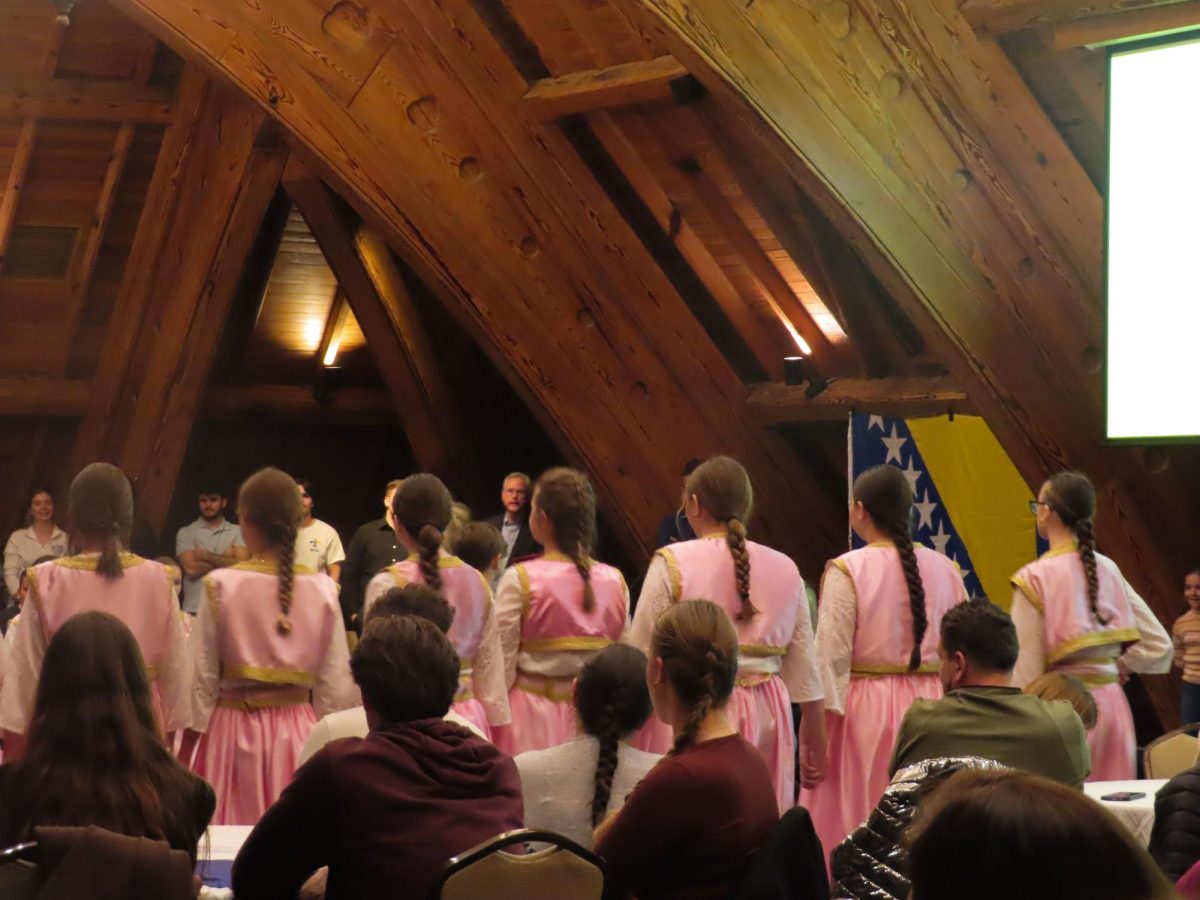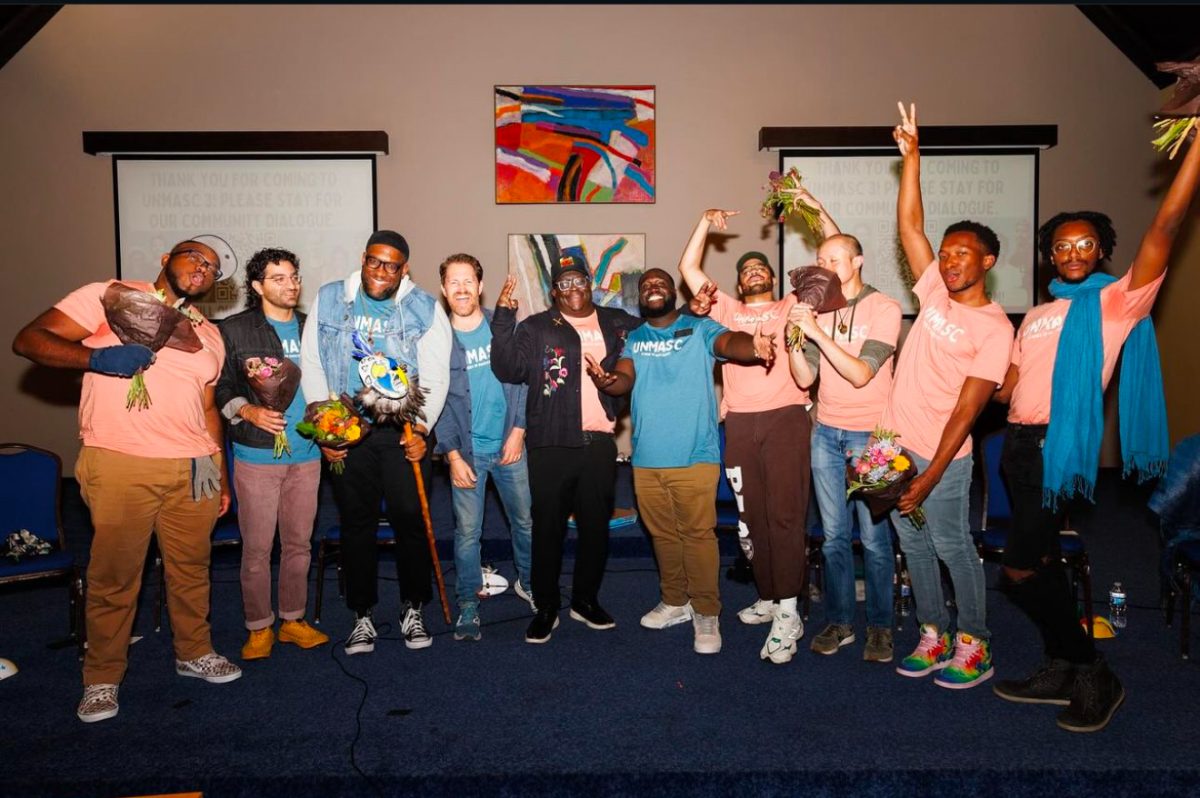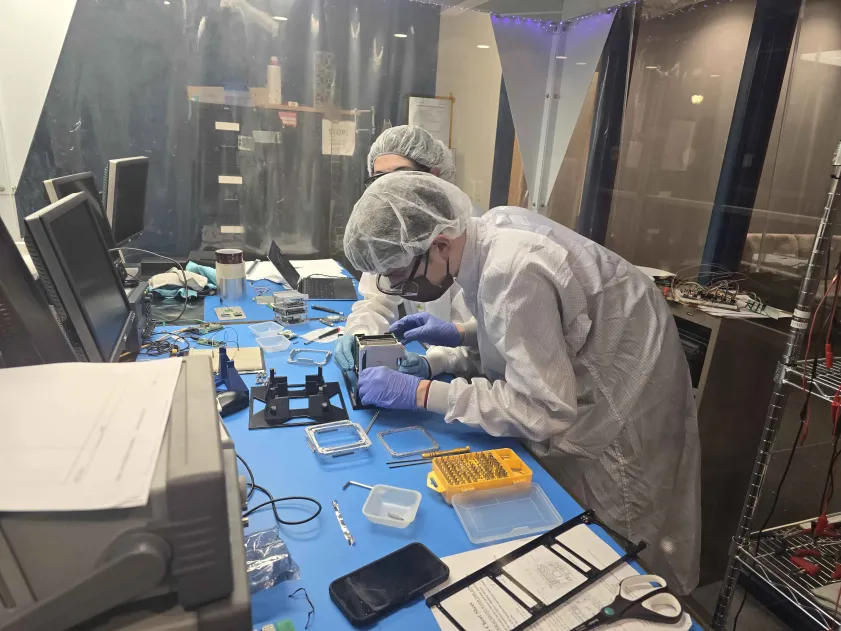Imagine working in a factory and being paid a mere $1.25 per day. For Jim Keady and Leslie Kretzu, this became reality when they lived in Indonesia and worked for Nike. Keady and Kretzu are the co-founders of Educating for Justice, a campaign to educate the public about the human stories of Nike’s factory workers.
Keady and Kretzu were the keynote speakers this past Friday for the JUSTICE conference at Saint Louis University.
Justin Lampe is the president of JUSTICE, he was responsible for obtaining funding for the presentation from the Student Government Association.
“Educating for Justice was only the highlight of four days of presentations from 17 Jesuit universities and colleges that were at the Manresa Center for the weekend, all hoping to leave with a better understanding of the different JUSTICE chapters across the country,” Lampe said.
Tricia Fechter is a member of JUSTICE who helped in the planning of the conference.
“Our goal was to provide an informative and challenging keynote speaker for both the conference participants and also members of the University community,” Fechter said.
Sara Jatcko, a junior majoring in history at SLU and JUSTICE member, had seen the presentation before.
“I was impressed,” said Jatcko, “I heard them speak two years ago. What they did and the information they got was something everyone needs to know. It helps students understand why corporate responsibility is an important issue and how it affects us.”
The presentation began with a look at globalization and the statistics of poverty. A video was shown, which humanized the experience of Indonesian factory workers.
The details were disturbing: streets lined by open sewers, football-sized rats and fist-sized cockroaches. Keady lost 25 pounds during the month-long immersion. Kretzu became so ill that she was forced to decide between spending her remaining daily wages on medicine or on food.
Their mission was not only to understand the culture, but also to help organize the workers to fight for their rights.
Both Keady and Kretzu tried contacting the Nike administration, including asking the CEO questions about the exploitation in Indonesia. But, as seen in the video, Nike’s CEO refused to comment on the issue.
Keady and Kretzu are in the process of developing this video into a documentary using the more than 300 hours of footage they shot.
During the presentation, Keady and Kretzu used a volunteer from the audience as an example of factory workers in everyday situations, depicting the difficulties the workers typically face.
Following the presentation, Keady and Kretzu opened the floor to questions. They explained that their long-term goal was to get legislature passed to stop the exploitation of factory workers in Indonesia and other similar countries. To put pressure on the government, they urged audience members to contact their representatives.
Jill Lindmeier, a junior psychology major, heard an announcement about the presentation in her social justice course. The presentation was emotional for her.
“It’s so overwhelming,” said Lindmeier. “I think it’s really hard in today’s world to balance a commitment to social justice and making a difference, and to make a living to provide for your family at the same time.”
“I wish that every student on campus could have seen this presentation,” said Fechter. “I think it renewed my sense of just how lucky I am to have all of the things that I do in life, and also that I can help work to make a change, even right here on our campus. One person can make a difference.”
“I thought the presentation was really well done,” said Lampe. “Any SLU student that was not there really missed a good opportunity to become more informed on an issue. It was a presentation that really fits the Jesuit education model well.”
For more information on Educating for Justice and the issue of exploitation in foreign Nike factories, visit www.nikewages.org.



